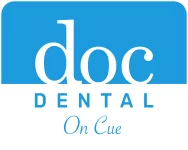The Difference Between Dental Bridges & Partial Dentures

Having gaps in your smile can affect your bite, your speech and your appearance. If you are missing teeth, both dental bridges and partial dentures are common options for replacing teeth. Which one is best for you depends on your oral health and your lifestyle. The dentist is best qualified to help you make this decision, but here are the basics of bridges and partial dentures as a primer.
Dental Bridges
Dental bridges are artificial teeth which are permanently attached in your mouth. We call this kind of restoration a bridge because it bridges the gap between your existing teeth. They are most often secured by being bonded or cemented to neighboring teeth. A typical bridge consists of an artificial tooth flanked by two crowns, which fit over prepared neighboring teeth. If there are no stable neighboring teeth or multiple teeth are missing, bridges are sometimes attached to dental implants. Bridges are made from gold, metal alloys, or porcelain. Which material is used depends on your preference and the dentist’s recommendation. Just to make things confusing, bridges are sometimes called “fixed partial dentures”.
Partial Dentures
Unlike bridges, partial dentures are a removable option for replacing teeth. Just like a denture that replaces an entire arch of teeth, a partial denture is removed to be cleaned and while sleeping. Another difference is that partial dentures usually include both artificial gums made from pink acrylic into which false teeth are mounted. Bridges are just the teeth. A partial denture is attached in your mouth using clasps or precision attachments that clip on to your natural teeth.
Which One is Right for You
If you have several teeth in a row that are missing, the dentist is more likely to recommend a partial denture. However, if only one or two are missing, a bridge may be more appropriate. Another big factor is the dentist’s predictions about your dental health in the future. If there is a chance that you may lose more teeth, it makes less sense to attach a restoration to existing teeth. In this case, the dentist may opt for the partial denture.
While these are the basics you need to know, there are more detailed factors regarding your oral health that we may need to consider when replacing missing teeth. Any treatment we recommend will be customized to your situation and we gladly answer any questions you may have about the details of our dental bridge or partial denture treatments.
